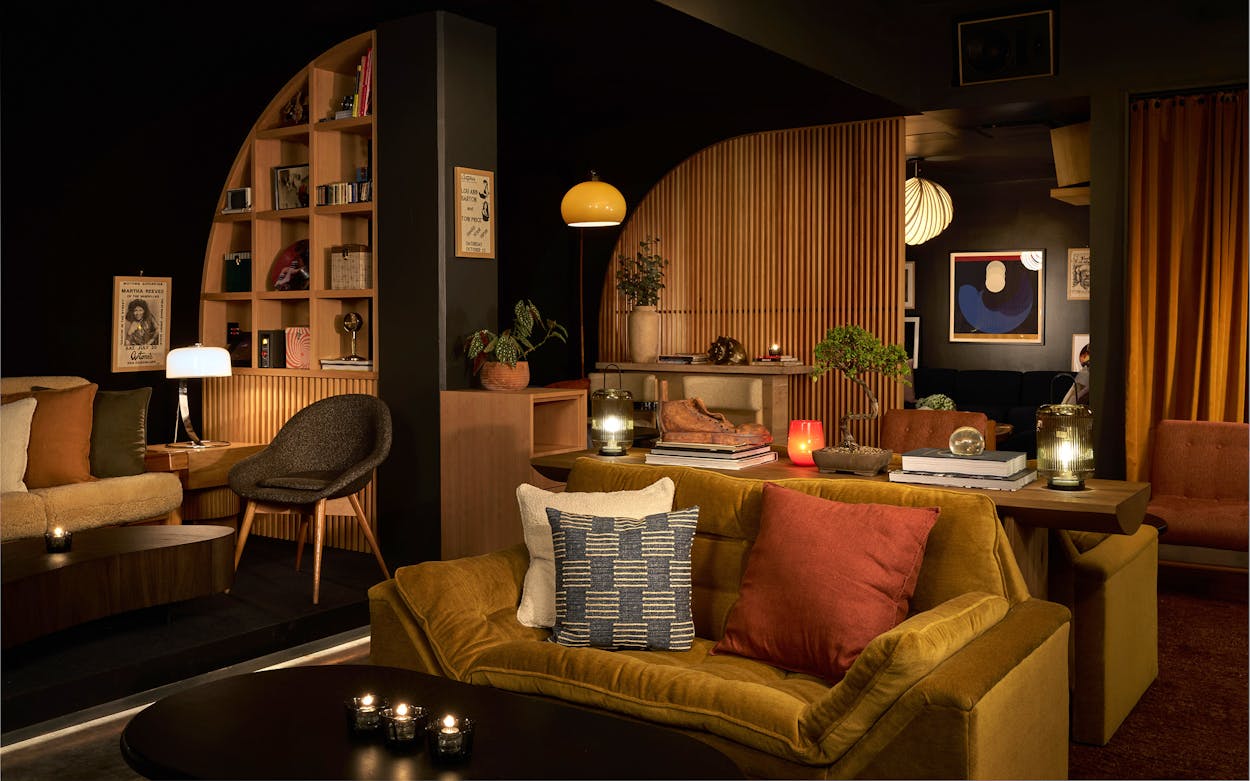If you were living in Japan in the mid-twentieth century, and you were cool, intellectual, and politically conscious—or, at least, you were pretending to be those things—your go-to hangout would almost certainly have been a jazu kissa, a cafe dedicated to listening to jazz records. Jazz, invented in America, boomed in midcentury Japan partly thanks to French New Wave films; jazz made up the bulk of their soundtracks. Japan was soon a country infatuated with the genre, but jazz artists at the time rarely toured in Japan, and jazz records were very expensive since they had to be imported from the States.
That didn’t stop some entrepreneurial obsessives from spending the cash to build record collections that would serve as the foundations for kissa, which quickly proliferated across the country. At their peak in the seventies—before home stereo systems became widely affordable—there were at least five hundred jazz kissa in Japan. There are still about a hundred in Tokyo. A typical kissa is a no-frills affair with four features: a massive vinyl collection, anywhere between several hundred to several thousand records, lining the walls of the usually modest space; an excellent, high-fidelity sound system; comfortable seating; and a proprietor who selects the music (before you ask: you’re there to listen and discover, not blurt out requests), serves coffee or beverages, and very seldom speaks when the music is playing—and expects you to follow suit. Hard-core kissa sometimes have signs telling customers to observe complete silence.
Several years ago, James Moody, owner of Mohawk, a music venue in Austin, was in Tokyo and visited JBS (Jazz, Blues, Soul), one of the city’s better-known kissa. Moody watched as JBS owner Kobayashi Kazuhiro carefully selected the music from his library of 10,000-plus vinyl records and crafted the drinks. “It was like a quiet, confident, focused art curator managing a very deliberate and special collection inside a cool museum with whiskey,” Moody said. “People were talking, but they were actually listening too—something I rarely see even at the most intimate live shows in Austin.” Moody got to thinking, and then he started making calls.
This month, Equipment Room, a new high-fidelity vinyl bar, opened in what was previously a basement storage room in Austin’s Hotel Magdalena. “Moody and I have been talking about this idea for what feels like almost a decade,” said Amar Lalvani, Executive Chairman of Standard International and its sister company, Bunkhouse group, which built Hotel Magdalena and partnered on Equipment Room. “It’s based on our shared interests in Japan, vinyl, vintage hi-fi, sake, and whiskey.” It’s meant to be “a space that celebrates the intricate craft of each but in an unpretentious way.”
The music in Equipment Room’s collection of more than 1,200 vinyl records, which was compiled in large part by Gabe Vaughn and Josh LaRue, owners of the local Breakaway Records store, includes other genres in addition to jazz, blues, and soul. “We agreed to start building the collection long before the business existed,” Moody said. “In so many ways, it kept us going through the ups and downs of designing and constructing the space to this level of detail, which was at times excruciating.”
Indeed, in contrast to many of the bar’s Japanese counterparts, what makes Equipment Room special are its frills: the entrance to the bar is a soundproof portal clad in the type of acoustic foam one would find in a recording studio, and the bar’s ceiling is lined with two-inch-thick acoustic foam panels and specialty tiles. The wall across from the turntables is upholstered in felt and curves toward the bar’s speakers and subwoofers, which are precisely placed to maximize acoustics for every seat in the house. While the entrance and the space itself are meant to instill a sense of mostly silent reverence, “we absolutely do want people to have fun and enjoy themselves,” Lalvani said. “The space is acoustically designed to be able to have a great listening experience while having a great conversation.” The cocktail and food menus have been carefully designed to complement Equipment Room’s ethos and pay homage to the kissa culture that inspired it.
The result is a welcome addition to Austin’s music scene—and a fitting one. Equipment Room is literally on Music Lane, after all.
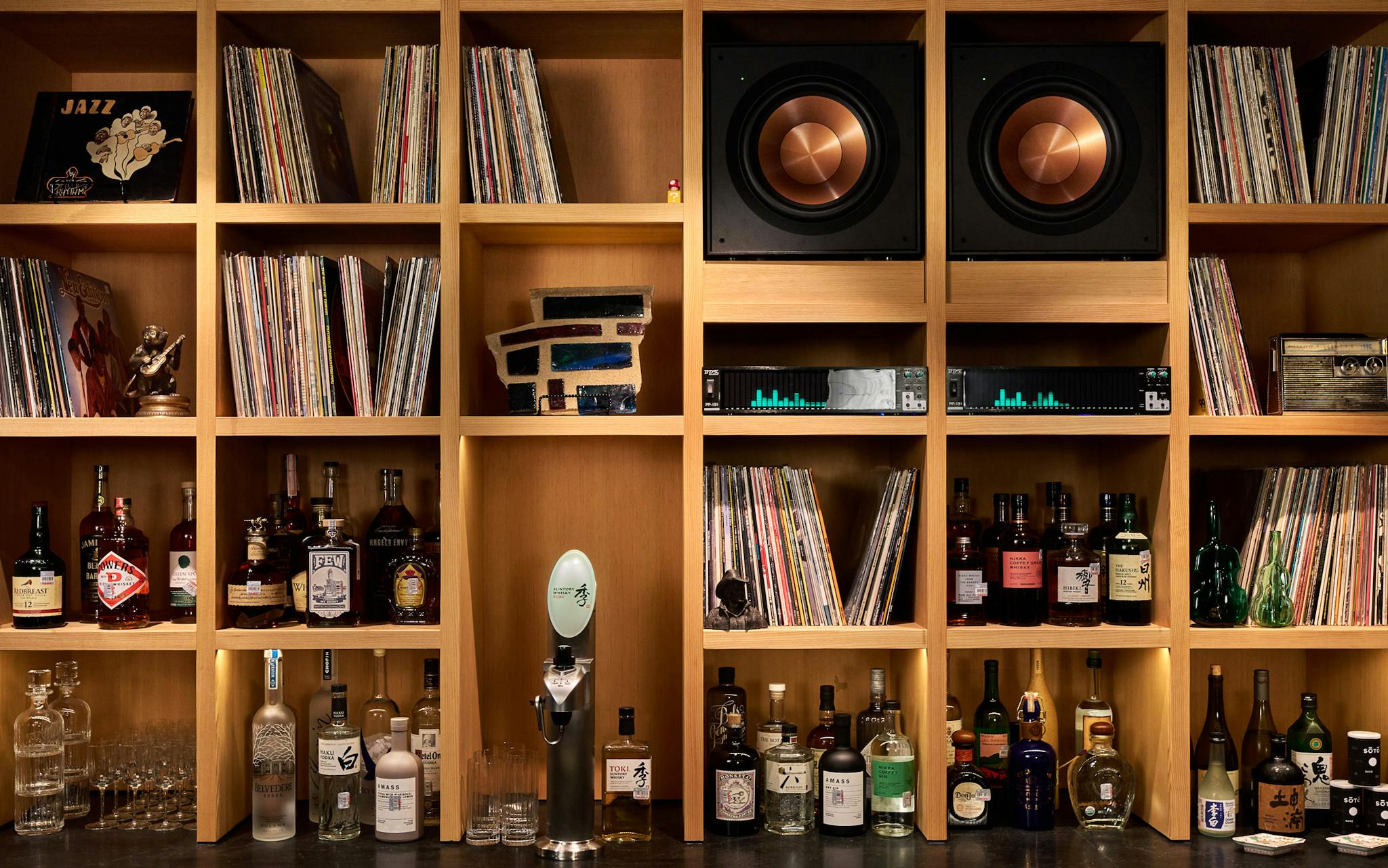
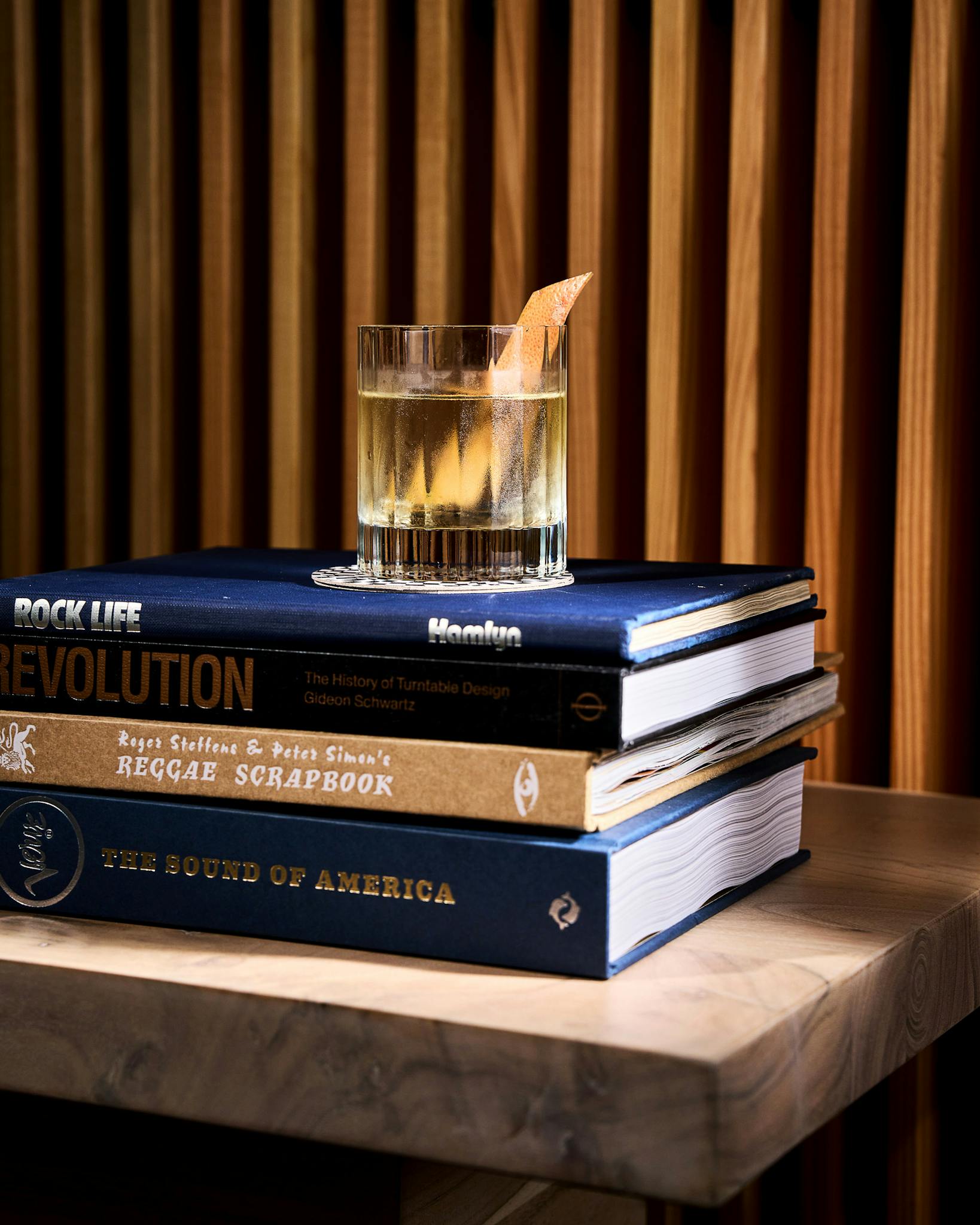
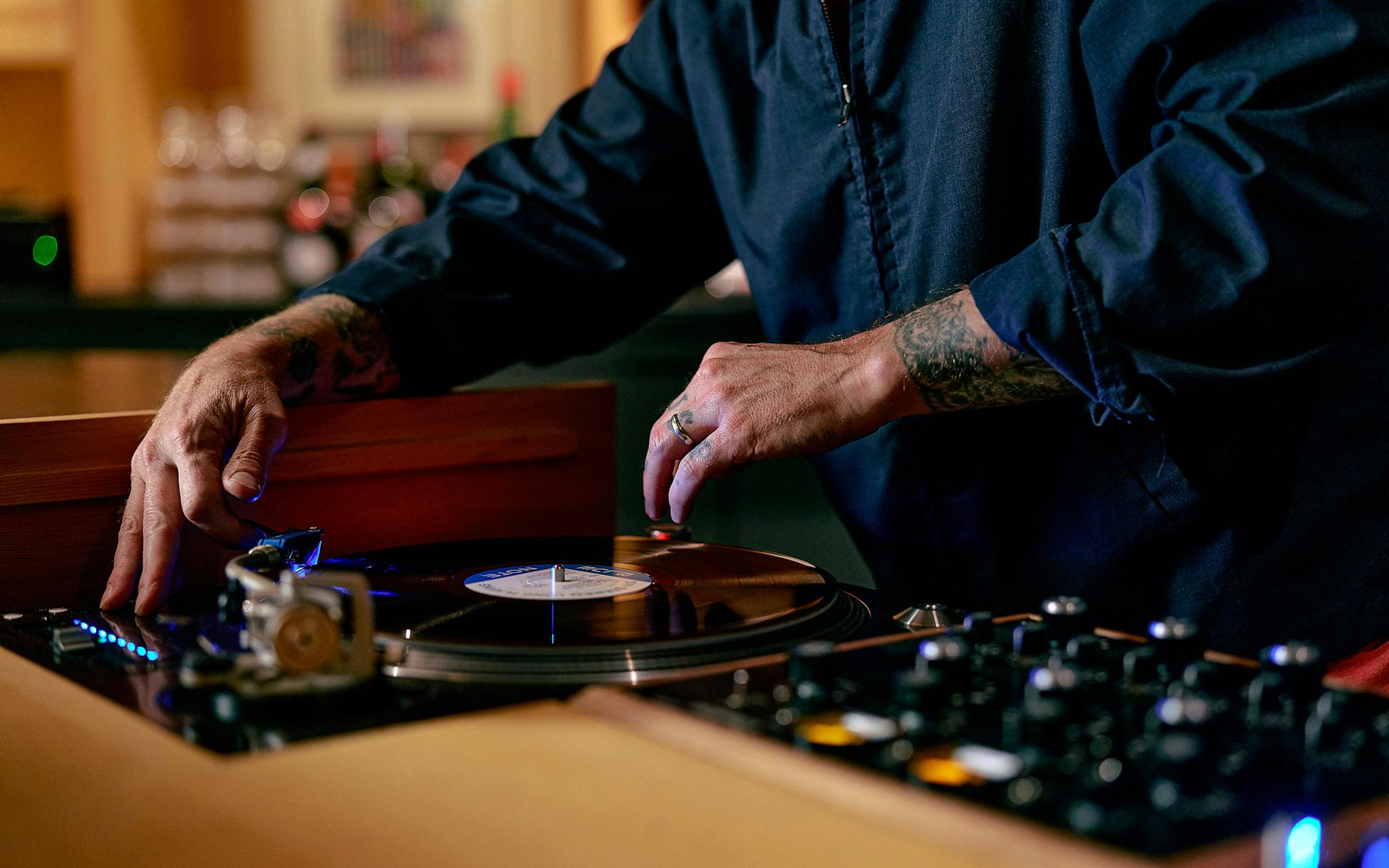
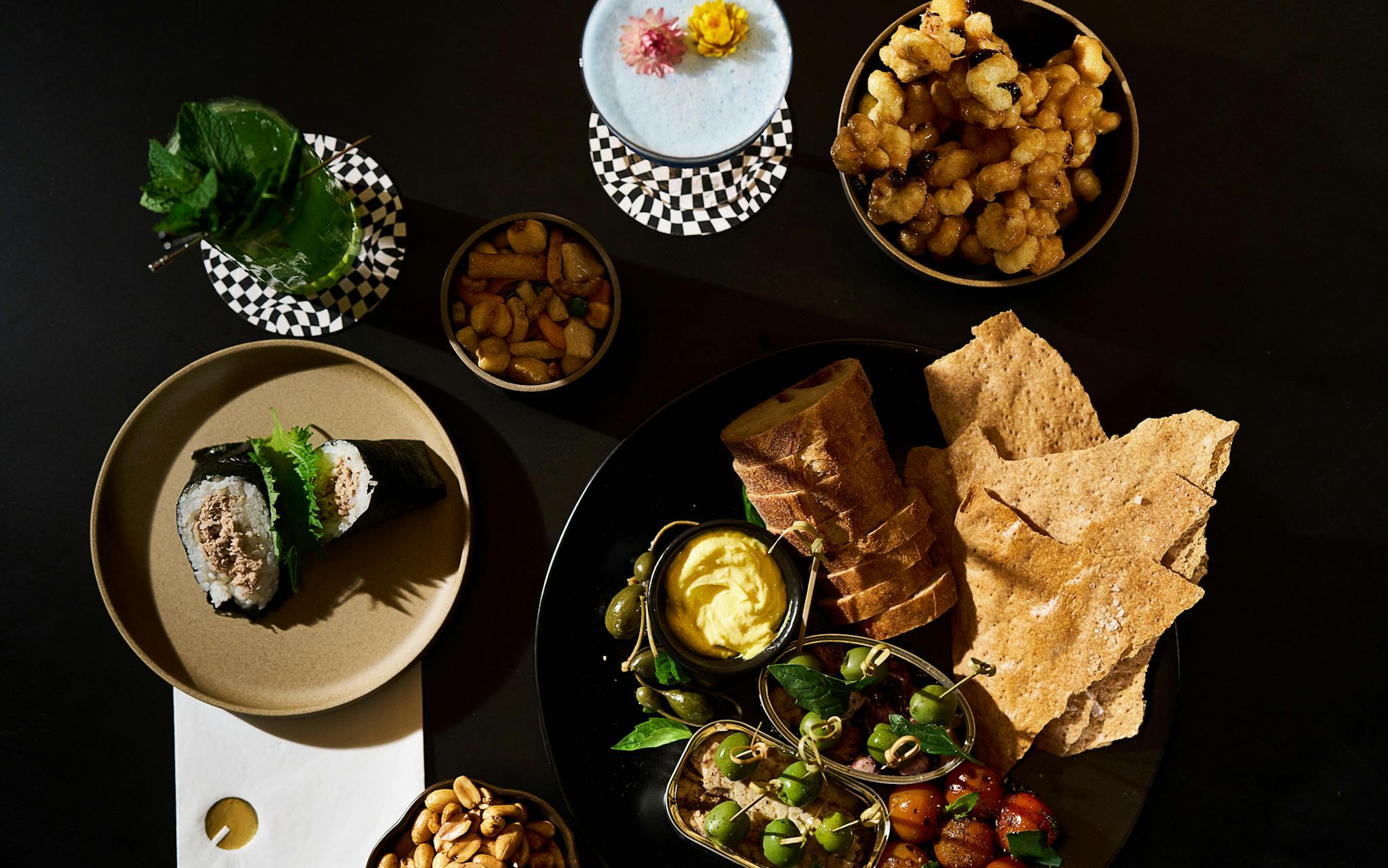
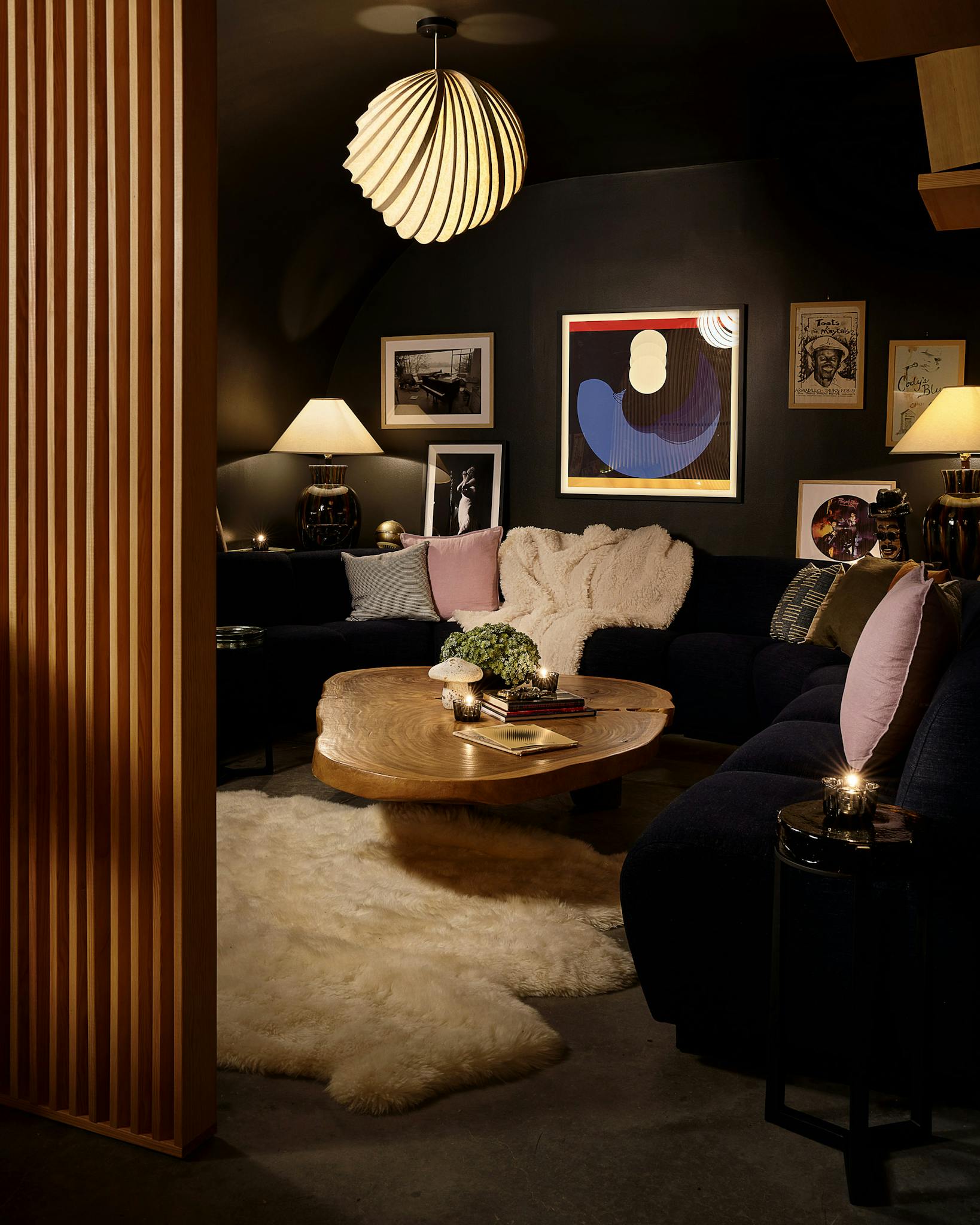
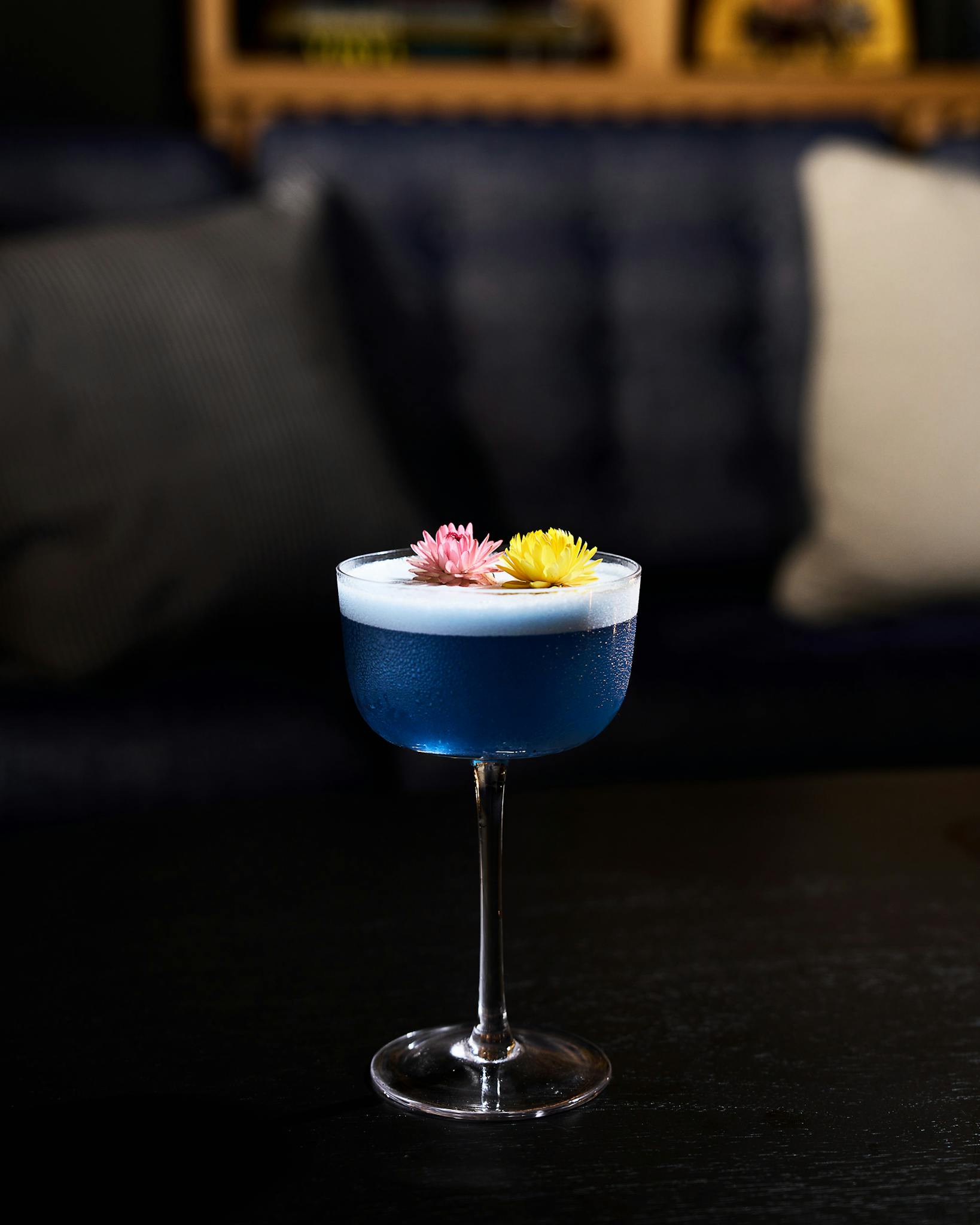
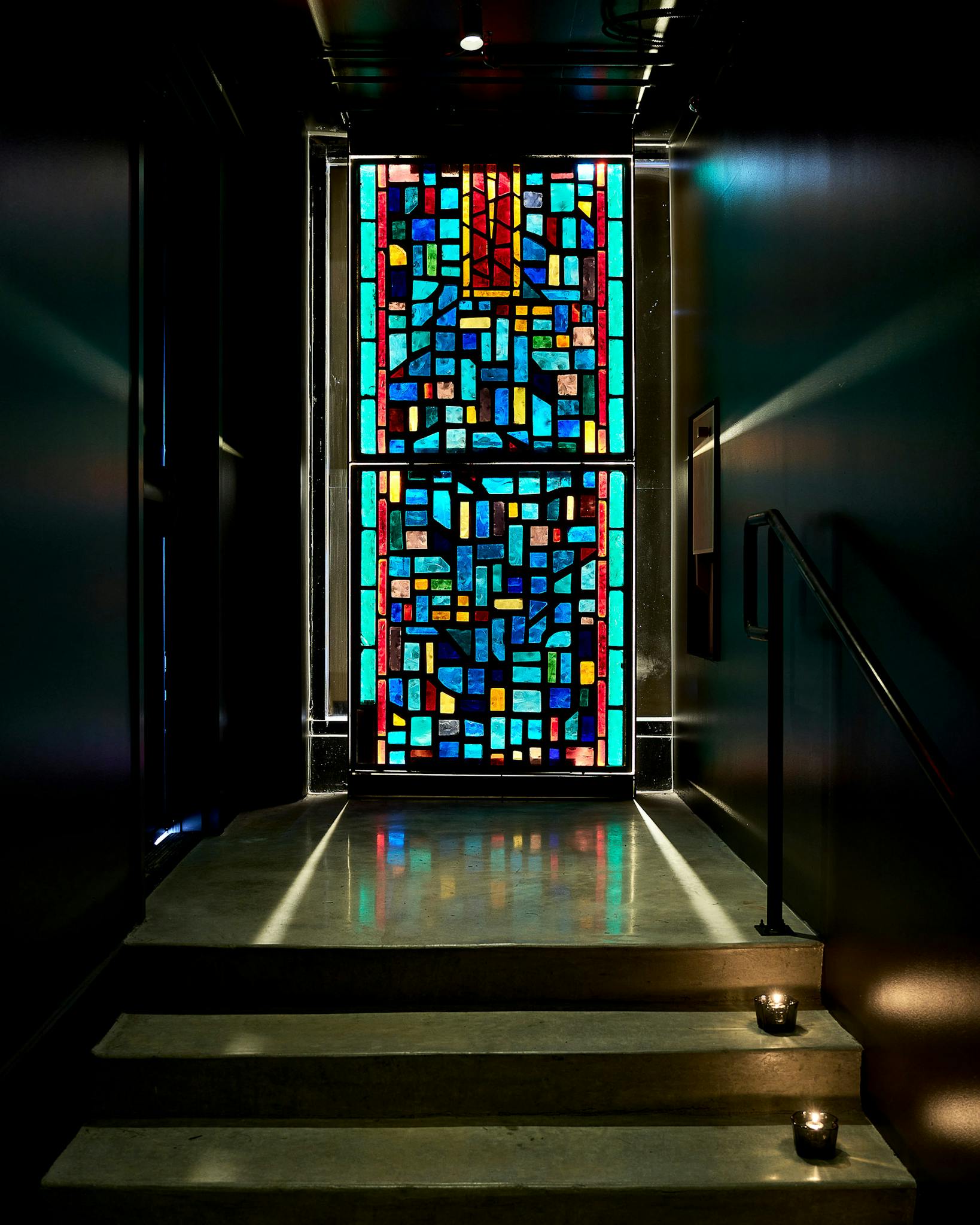
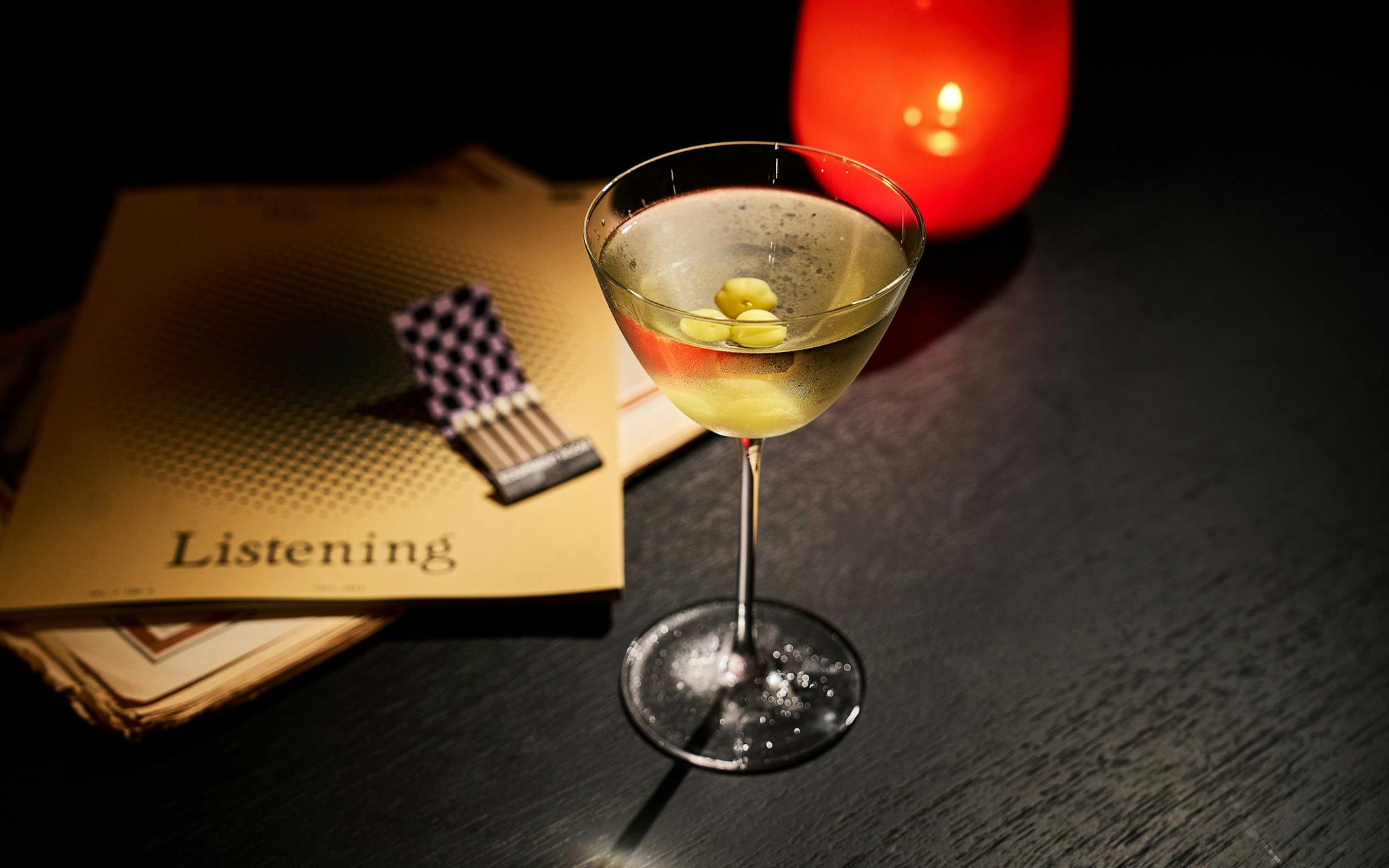
- More About:
- Style & Design
- Music
- Libations
- Bars
- Austin


